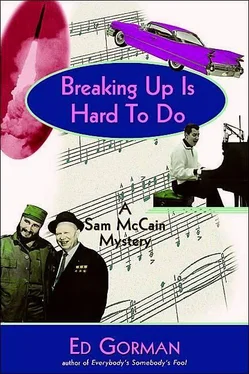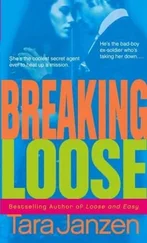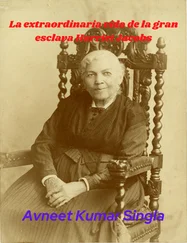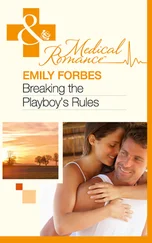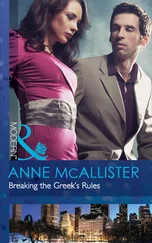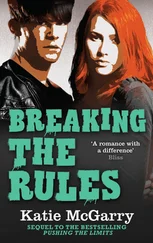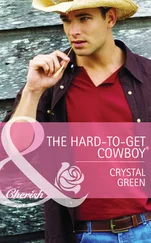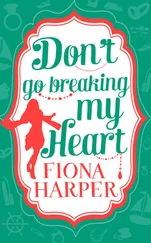I ate sitting in the recliner. I then polished off the beer, smoked a few cigarettes and thought about Mary. Looks, smarts, tenderness, laughs. That was Mary. But Mary also offered love so strong it was sometimes overwhelming, smothering. Always had, always would. Just her nature. And now Mary offered two kids in tow as well.
I didn’t find the teddy bear until I slid under the covers. A big brown teddy bear wearing a lawman’s badge. A tiny note Scotch-taped to it: Your Secret Admirer. God, it was corny but there in the wind-whipped prairie night it felt good to know that she was out there, thinking of me.
“Who’s this guy?” my dad said at seven-thirty the following morning.
“I don’t know. He claims to be our son. He just showed up here a few minutes ago. Says he lived with us for a long time. But I’m not sure we have a son, do we? If we have, I haven’t seen him in a long, long time.”
“Years and years,” Dad said.
“You have any ID?” Mom said, dishing up the pancakes and the bacon and setting it in front of me. The milk and orange juice and daily vitamin were already in front of me on the kitchen table.
“How come he gets to eat first?” Dad said. “We don’t even know if he belongs to us.”
“Whoever he is, he seems to think he’s real important. Says he’s got a big meeting at nine and has to be ready for it.”
“Yeah, he looks important all right,” Dad said.
“Gee, I’m sure glad Abbott and Costello started making movies again,” I said.
“So how are you, son?”
“Don’t let him off the hook so easily,” Mom said. “We don’t hear from him for nearly a week, he deserves a little razzing.”
Mom and Dad are a matched set. Mom is five-two and most of her hair is still red. Dad is five-six and most of his hair has gone to hair heaven. Toward the end of my high school years, Dad got promoted at the factory where he’d worked since coming back from the war, and for the first time our family moved to a respectable neighborhood, lived in a house and drove a respectable used Ford. My sister Ruth lived in Chicago. She’d moved there after getting pregnant when she was seventeen. Nobody was happy about it but she sure wouldn’t get an abortion, not even in sinful Chicago. Even though I thought that was the best solution, my folks were shocked when I even brought it up. She’d have to give prior notice before she came back here so we could give the most important of the gossips plenty of time to work up their most venomous scorn. Sometimes, as now, I’d look across the table and imagine Ruthie still there, that sweet Mick face of freckles and slightly imperious nose and great gladifying lopsided McCain smile. Granddad wore it even in his coffin. Her life had been peaceful and almost perfect until her pregnancy and since then it had been nothing but travail in Chicago—a mother who worked and left her kid at the YMCA center; a number of hopeless, hapless, unhealthy affairs; a boozy slur in the voice when she called sometimes; and a sense I shared with Mom and Dad that she wasn’t Ruth any more, not the Ruth we’d known, and that she was as sad about it as we were. But none of us had any idea what to do about it. Sometimes I’d think of her and I swear to God I just wanted to die right on the spot, my entire body and mind in pain—take my gun and put it to my temple and just fire it before I had time to back out of it—it was just so hard to think about how much I loved her and was helpless in the face of her grief and sorrow.
But this was a sunny morning and Captain Kangaroo was on TV in the living room—Mom still watched it because Ruth had always watched it in the morning; I suppose it was a way of keeping her with us—and Mom was saying, “I think they could plead insanity and get away with it.”
Around a mouthful of pancake, I said, “Who should plead insanity because they could get away with it?”
“She means Ross Murdoch and those other three. That’s all she’s been talking about. I keep trying to tell her things like that go on all the time.”
“Why, a situation like that is no better than prostitution,” Mom said.
Dad said, “That’s what you can do when you have money.”
Mom said, “You can have your own geisha woman if you have money is what you’re saying? There aren’t any better things to do than that?”
Dad said, “If you have a lot of money you can do that and still do all the other better things, too.”
Mom said, “It’s their wives I feel sorry for. And their children. My Lord, the gossips will have a field day.”
“Already are,” I said. “Everywhere I go people tell me Murdoch jokes.”
“She must’ve had some temper,” Dad said.
“How’s that? And may I have some syrup?”
“You see how polite he is since he moved out of the house?” Mom said.
Dad winked at her, making sure I saw it. “Maybe he should have moved out sooner. He’d be even more polite by now.”
“Maybe I didn’t raise him right,” Mom said.
“Oh, Lord,” Dad said, “I wish those magazines had never been published.”
Mom was a reader of parental magazines. How to train Little Bobby not to poop in his soup; hit the kitties with his hammer; say dirty words to company before he reached the age of three. You know the magazines I’m talking about. Like most women of her generation, Mom spent a number of hours per week perusing these rags and then torturing herself with the certain knowledge that she had failed me as a loving mom, tutor and inspirer of lofty goals.
“So what’s this about her temper?”
“Scotty McBain down to the plant?”
“Uh-huh,” I said. I was working on the three strips of delicately wrought bacon.
“He said she had some temper.”
“Who did?” I said.
“That gal they were keeping.”
“Karen Hastings?”
He nodded. He was working on his bacon, too.
“How did Scotty McBain know she had a temper?”
“In the summer he’s got this canoe rental deal he runs on the side. His wife works there during the day and then he takes over when he’s done at the plant.”
“Oh. Right. I forgot.”
“Anyway, this Hastings gal, she used to go around with this gal got a trailer right up the road from where Scotty’s got his canoe renting deal. Very nice looking gal.”
“What’re you doing, honey?” Mom asked me.
“Writing.”
“Writing what?”
“I’m putting what Dad says in my notebook so I’ll remember to follow up on this.”
“Are you working on this thing?” Dad said.
“Uh-huh. Go ahead.”
Dad shrugged. “Well, it isn’t any big deal. This gal—I don’t remember her name—and the Hastings gal, they’d rent canoes together, see. And so one day they were climbing into their canoe and a couple guys—smart-asses, you know—started makin’ remarks. You know how guys get. And Scotty said they were pretty drunk, besides. He wouldn’t rent ’em a canoe. So anyway you got these two really good lookin’ gals and these two smartasses and the gals kinda play along while they’re getting their canoe ready and then one of the guys kinda pats the Hastings gal on the rump. And man. Scotty says he never saw a woman hit a man as hard as she did that guy. Really rocked him. And she wasn’t much bigger than your mom. Scotty said the guys were really mad but they backed off and left.”
“Scotty still working at the plant?”
“Nope. He retired about the time I did.”
“I still say I feel sorry for their families.” Mom said. “And their poor kids.”
“Well, most of their kids are grown up by now,” I said.
“I hear Murdoch hired a Chicago lawyer, huh?”
“Yep. Very big-time guy. Seems all right.”
Читать дальше
